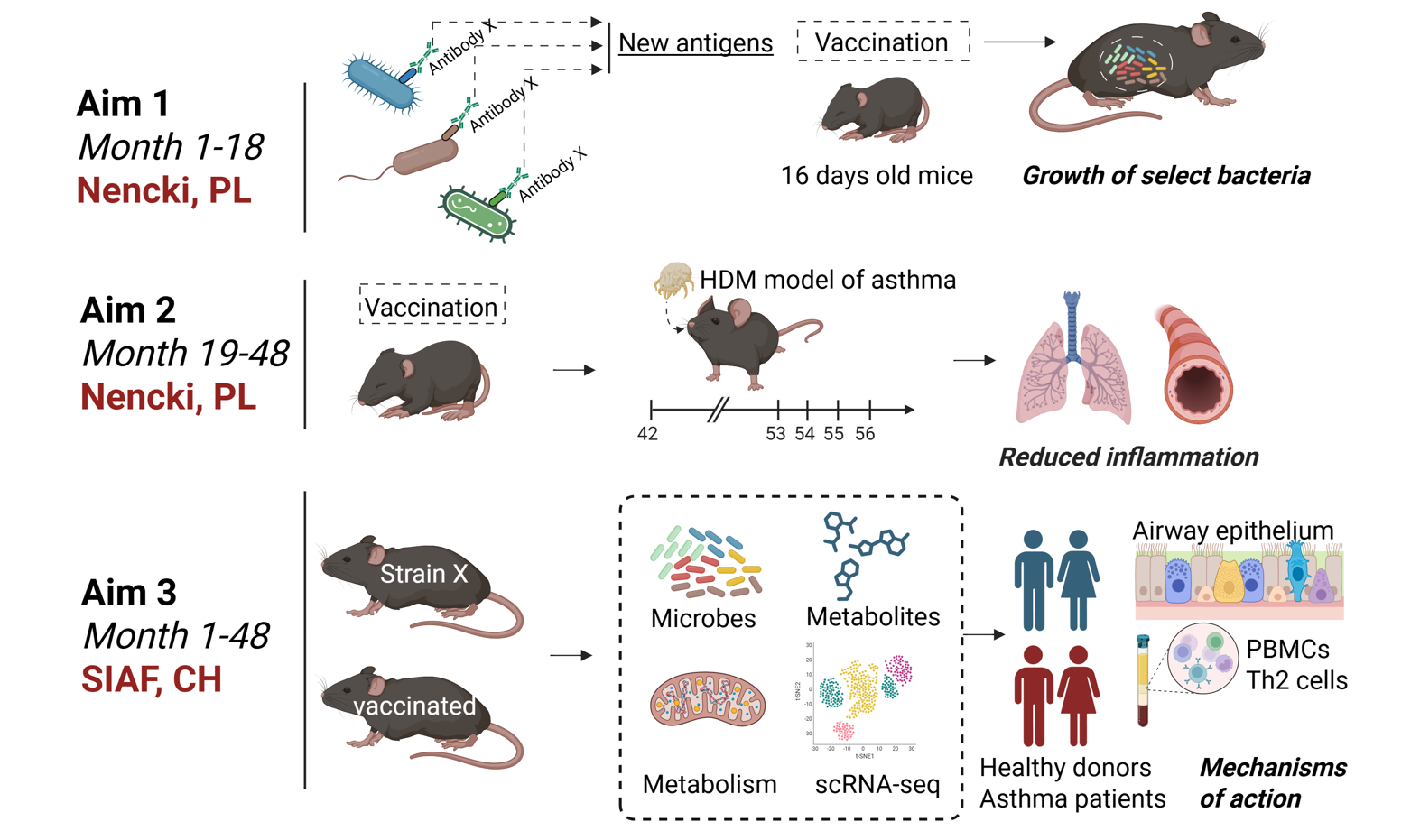
The tiny living organisms inside our bodies, known as the microbiota, play a crucial role in keeping us healthy. They affect various aspects of our biology, including our immune system. In recent years, we have learntthat these microbes influence the risk of developing asthma.
Because of this, scientists have suggested different strategies to prevent or ease asthma symptoms by targeting the microbiome. These include growing up in rural areas, breastfeeding, eating high-fiber meals, drinking unpasteurized cow's milk, or even being less strict about cleanliness. However, these ideas are often hard to put into practice and might raise safety concerns. So, the key question remains unanswered: can we develop practical and safe solutions to use the microbiome for our health?
Apart from the environment, the microbiome is also shaped by our immune system, which produces specific antibodies. While we used to think that those antibodies only work by eliminating pathogenic bacterial strains, recent evidence shows that it is more complicated: the outcome depends on various factors, and in some cases, these interactions can actually help some bacteria with beneficial properties survive.
In our previous studies, we discovered a specific antibodyclonethat helps certain bacteria grow, and these bacteria protect mice against asthma.Now, joining efforts with Swiss Institute of Allergy and Asthma Research (SIAF, Dr. Milena Sokolowska),we want to use this information to design vaccines that stably enhance the survival of these bacteria in our gut for the protection against asthma.



